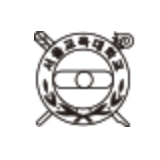Korea National University of Education (한국교원대학교)
Overview
Established in 1946
Nature: A four-year national university of education
Location: Located in Cheongju City, North Chungcheong Province, South Korea.
Educational philosophy
The educational philosophy of the Korea National University of Education is to cultivate elementary school teachers with moral qualities, knowledge and professional skills. The school is committed to cultivating excellent teachers who are competent for primary education for national and social development based on the Korean educational philosophy.
Historical background
1946: Founded, initially named Gyeonggi Public Normal School.
1962: Renamed Seoul Affiliated University, becoming a two-year university.
1981: Officially renamed Korea National University of Education and transformed into a four-year university.
Modern: After decades of development, Korea National University of Education has become one of the top educational universities in South Korea, enjoying a high reputation in elementary school teacher training and educational research.
Disciplines and Faculties
Undergraduate Programs:
Ethics Education Department
Korean Language Education Department
Social Science Education Department
Mathematics Education Department
Science Education Department
Physical Education Department
Music Education Department
Art Education Department
Life Science Education Department
Elementary Education Department
English Education Department
Computer Education Department
Early Childhood Special Education Department
Graduate Programs:
Graduate School of Education: offers master's and doctoral programs in multiple majors, including pedagogy, educational psychology, curriculum and teaching theory, etc.
Featured Majors
Elementary Education Department: focuses on the training of elementary school teachers and provides comprehensive educational theory and practical training.
English Education Department: emphasizes the cultivation of language skills and international vision to meet the needs of the era of globalization.
Special Education Department: focuses on educational methods and strategies for students with special needs.
Educational Technology Department: combines information technology and educational theory to cultivate professionals who can use modern technology for teaching.
Campus Facilities
Library: has a wealth of educational books and resources.
Computer Room: equipped with advanced computer equipment to support learning and research related to information technology.
Elementary Education Training Institute: provides continuing education training for in-service teachers.
Adult College: provides adult education courses.
Attached Elementary School (Seoul National University of Education Attached Junior School): Serves as an internship base to provide students with practical teaching experience.
News Broadcasting Club: Develops students' skills in media and communication.
Science Talent Education Institute: Focuses on research and innovation in science education.
Basic Science Education Research Institute: Promotes the development of basic science education.
Contact Information
Official Website: http://www.knue.ac.kr/ (Korean)
Address: 55, Daehak-ro, Osong-eup, Sangdang-gu, Cheongju, Chungcheongbuk-do, South Korea
Tel: +82-43-249-1114
Email: admission@knue.ac.kr
Ranking and Recognition
Domestic Ranking: Ranked among the top universities in Korea in the field of education.
International Influence: Although the comprehensive ranking in the world may not be as good as some comprehensive universities, in the field of education, the National University of Education of Korea is widely recognized for its focus and high-quality teaching.
Other Information
Admission Requirements:
Undergraduate: Applicants usually need to pass a rigorous entrance examination to demonstrate their academic ability and passion for education. Some courses require Korean language proficiency (TOPIK Level 3 or above).
Graduate students: Applicants need to have a bachelor's degree in a related major and pass the corresponding entrance examination. Some courses require Korean proficiency (TOPIK level 4-6), and English-taught courses require English proficiency (TOEFL, IELTS, etc.).
Scholarships: The school offers a variety of scholarship opportunities, including government scholarships, on-campus scholarships, etc., to help outstanding students reduce their financial burden.
Internship opportunities: The school cooperates with many elementary schools to provide students with abundant internship opportunities and enhance practical teaching capabilities.
International cooperation: The National University of Education of Korea has signed academic exchange agreements with many educational institutions around the world, providing exchange student programs and dual degree programs to help students expand their international perspectives.
Features and achievements
Academic research: The National University of Education of Korea has strong research strength in educational theory, educational technology, and special education.
Internationalization: The school actively promotes the internationalization process, attracts a large number of international students and scholars, and provides a variety of international courses and programs.
Alumni network: The school's alumni are spread across elementary schools across Korea, and many graduates have become excellent teachers and educational leaders.
Campus life: The campus environment is beautiful and the facilities are advanced. Students can make full use of various resources for learning and practice. In addition, the school also has a wealth of extracurricular activities and community organizations to enrich students' campus life.
-
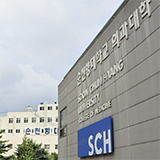
순천향대학교, Soonchunhyang University
-
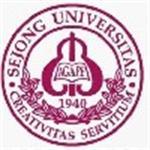
세종대학교,Sejong University
-
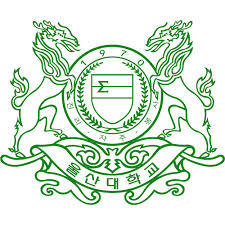
울산대학교,University of Ulsan
-
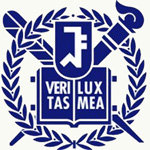
Seoul National University, SNU, 서울대학교
-
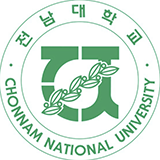
Chonnam National University, 전남대학교
-
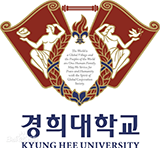
Kyung Hee University
-
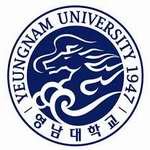
Yeungnam University, 영남대학교
-
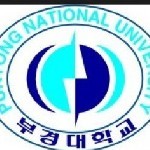
Pukyong National University, 국립부경대학교
-
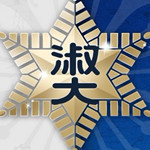
Sookmyung Women's University, 숙명여자대학교
-

Hallym University, 한림대학교
-

Mesoamerican University
-

Istmo University
-

Mariano Galvez University of Guatemala
-

Regional University of Guatemala
-

Galileo University
-

Francisco Marroquín University
-

Rafael Landívar University
-

University of the Valley of Guatemala
-

University of San Carlos of Guatemala
-

Technological Institute of Tlaxcala Plateau
-

Golfo University
-

Technological University of South Sonora
-

Technological University of Huejotzingo
-

Tizimín Institute of Technology
-

Chilpancingo Institute of Technology

